Vashti Bunyan - Interview
by Nicky Crewe
published: 14 / 11 / 2014
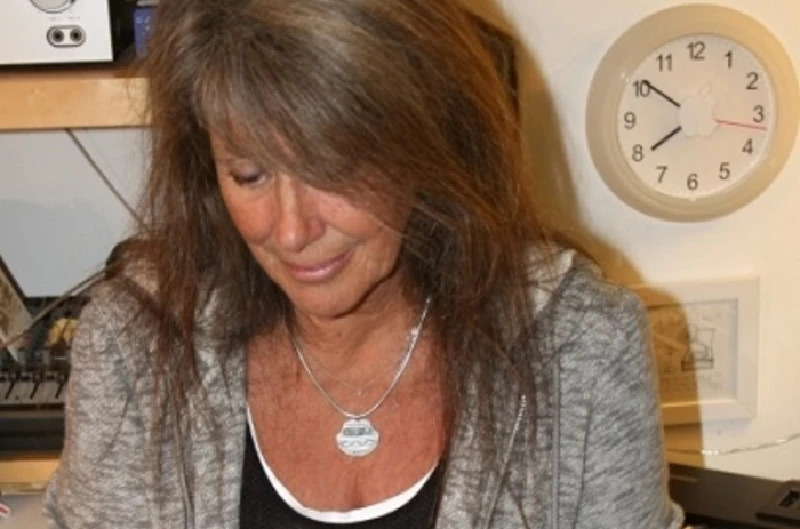
intro
Nicky Crewe speaks to 60's cult folk legend Vashti Bunyan about her fourth album, 'Heartleap'
Vashti Bunyan’s third album, 'Heartleap', has been seven years in the making. Following on from the fantastic success of the rediscovered 'Just Another Diamond Day,' which was re-released in 2000 after having coming out originally in 1970, and then 'Lookaftering', which was released in 2005, she started working on new songs in 2007. In 2009 the process was interrupted by the untimely death of Robert Kirby, who was going to work with her on new arrangements. Vashti decided to work on her own arrangements, and has recorded everything in her own way and at her own pace, using programming and synthesized sounds to recreate songs heard in her own head, rather than with the influence of a producer or engineer. It’s been a long but worthwhile process, as you will hear when you listen to the album. As she says, she has "emerged from the shelter of others." I was thrilled to get the chance to interview her, especially after having listened to 'Heartleap'. You have to imagine the warmth, the chuckles, the odd sigh and Vashti’s delightful speaking voice, as musical as her singing voice. I hope I have captured something of the pleasure it was to speak to her. PB: I’ve been listening to 'Heartleap' and I’d like to ask you some questions prompted by the lyrics of the new songs. The first one is 'Mother'. As a daughter you turned away when "my applause should have been rapturous." How did your family feel when you were rediscovered, and came back into the limelight, and began performing and writing again? VB: My children were really pleased. I think when 'Diamond Day' was reissued in 2000, my youngest was only fourteen and he was somewhat embarrassed to have it known that his mum was a hippy (Laughs) but the older two just embraced it completely, but as my youngest got older he really started to love it and to actually listen to the songs himself, and that was really lovely for me. Just a great affirmation really and that was the best. PB: Another line -I have taken it a bit out of context - from 'Shell', it’s "what it takes to be free?" VB: What it takes to be free? I don’t know, because there are so many things that tangle you up, from your lifetime of memories and experience. I think that’s what I was trying to say – how hard it is to be free. And to be free, do you have to be completely empty of all your experiences and memories? I don’t think it’s possible at all. And so for somebody who has had a really hard time, or a really difficult childhood, which is what my friend – the song started out about an actual friend – "When I first came up with your story/There is so much that is lost." It was about an actual person that I was thinking about. And then the song became more general as it went through, and then it became more personal again at the end. But about freedom, I felt how could she ever be free of what had happened to her when she was little? And then it became another friend, a male friend, who terrible things happened to. It was about an amalgam of people by the time I’d finished it. But to be free – I guess that’s what I was trying to be when I left London all those years ago, but it didn’t work (Laughs). PB: One of the obvious things to ask is about pressure in the music business now, and then, when you were first starting – as a woman. VB: I think when I was very young, and, coming into the music business, it never occurred to me that it would be any more difficult for me because I was a girl. I think it was only later that I looked back and thought, "Was it because I was a girl?"(Laughs) or did it happen to everybody? And if you didn’t have a really strong personality that would push you through – or pull you through – all the obstacles and difficulties and rejections and rudeness (Laughs). I think it was incredibly difficult for everybody, not just the young girls that first came into it. I knew plenty of young boys who had an equally terrible time, and now it seems to be very different. And again, I have not come across a situation in which I have thought, "It’s because I’m a woman!" Maybe I have been very very lucky. Certainly a lot of the people I am dealing with in the music business as it is now are all young. I think that they have a completely different attitude towards male/female. and I have had nothing but respect and kindness. I find that people expect me to say, "Oh, bloody music industry, it’s really horrible," and maybe I’m just very lucky. It’s been a real pleasure to be working with younger people who seem to have an innate feeling for what’s right and it cheers me enormously. PB: I know you have talked about whether you are folk or pop. You were pop back then and then were taken up by the alternative folk movement. Looking back, I would have said you were promoted in the mid 1960s as being like Francoise Hardy and Marianne Faithfull in her first incarnation. Is that something you would agree with and recognise in the way that you wre promoted? VB: Well, the way that I was promoted made me very upset to begin with because I realised I was being promoted as a replacement for Marianne Faithfull in Andrew Loog Oldham’s management. It had never occurred to me that that was going to happen. Andrew now says that it had never occurred to him either, and that it was the press who took it up. Once anybody said anything about me being a dark haired replacement for the blonde Marianne then it got taken up by everybody and that is what I became (Laughs). To me, I was completely different because I wrote my own songs, and I just didn’t feel we had any similarities at all, apart from we were both managed by Andrew Loog Oldham. That was really difficult, and yes – I aligned myself far more with someone like Francoise Hardy at that time. I really loved her. She was so important. Some of her songs were brilliant and the way she sang them was so completely unique. I very much liked what she did. PB: That brings me on to 'I Want to be Alone' and I made a leap from that to the lyrics of 'Blue Shed'. Sometimes you get what you wish for! Which you have said is what the lyrics of 'Blue Shed' are all about. You need your own creative space, and then you go through all those years of compromise and family life. VB: Yes! And you come out the other side and you start to miss all the slamming of doors and the yelling and the thundering up and down the stairs. PB: In that song you talk about being cut off from those you are close to and it’s "the end of me." I wondered which "me" that might be. VB: I’m just trying to remember the process that went into writing that line. "Oh, it could be the end of me." Yes, it could be the end of me because nobody could ever want to have anything more to do with me (Laughs). Everybody might have disappeared, or they might have got fed up with me and not want to speak to me anymore or listen to me. I think that’s what it was (Laughs). PB: The other thing that people talk about is your voice and your singing style. I think it’s such a unique and delicate sound, and for me there is enormous strength in the fragility of your voice. VB: I don’t understand my voice at all, and my eldest son gets at me sometimes and says, "Why can’t you just sing louder?" And I say, if I sing louder I lose all the expression. I lose too much by singing louder. It’s like speaking. If I were to sing louder, it would be like shouting. It was really strange for me to not sing for thirty years and then to get back and realise my voice was pretty much the same. It hadn’t matured in any way (Laughs). I think it has more recently, and I think you can hear it on the album. Seven years ago my voice was very similar to how it always had been, but I think more recently it has deepened a little bit. It’s grown up. And I quite like that about the album. It’s different. It shows the change in my life over the last few years as well. PB: Why have you said this is your last album? VB: That came about in the press release, because when we’d finished mastering the album, and it had been such a concentrated and intense time up till then, and then it was finished and I took it to Fat Cat, and they started talking about the next one. I thought, "I’m never doing this again!" PB: Like having a baby!(Laughs) VB: Exactly right! (Laughs) But of course, it found it’s way into the press release and I’m asked if it really is my last album. This took the nine years since my last album and if I put myself forward another seven or eight years, nine years, will there be such a thing as that format, a collection of songs? Also, if I were to come up with another song, would I have to think, "Oh well, I can’t put that out until I have got another nine or ten.” So that would put it all off again. So, I would much rather, if I do come up with something, to put it out now, to have it present, instead of waiting for the rest, or possibly another nine years. So it’s probably my last album, but hopefully not my last music. I have no idea what the future holds at all, musically, and it’s such a lovely feeling to have got the album finished, so I’m breathing for a while, and see what happens. PB: That brings me on to commercial success. And it was literally commercials for your songs, wasn’t it? So why? VB: I know, it’s really strange. I know I upset a lot of people with it. At at 18, 19, going round in London, knocking on doors, trying to find my way, I was constantly being told that I was "uncommercial". So to have one of these songs taken up as a commercial was just absolutely wonderful! A complete delight! It really helped to bring the songs out into the world. It also enabled me to tour and to employ other musicians and to really go for having a musical life. I wouldn’t have been able to do it without it. So, I’m really grateful. And yet I know it has upset people who felt that 'Diamond Day' was too precious to give away like that. But I didn’t feel like that at all – it was just what it needed. PB: I wanted to ask you if there was a difference between travelling and touring. You wrote the songs that made up 'Just Another Diamond Day', for example, while travelling in a horse and cart across Britain to the Hebrides Islands in 1967. VB: To get back to the word ‘free’ and freedom, It was the most extraordinary feeling of freedom that I have never experienced since. Of having everything we needed to survive in this little tiny six foot by three foot space. And that we could look after the horse and just find our way through the country, which changed so rapidly from area to area. We learned so much from people, and people were either very generous, or they were very unkind. We learned such a huge amount and I could never have had that education if we hadn’t been moving, and I’m really grateful for that. It’s informed the rest of my life. Travelling like that, so slowly, was the most wonderful experience. I’m so grateful that I did it. And as far as the touring goes, for me it was quite different. I became a totally different person, living in hotels and having no responsibility. No domestic responsibility – That was good! (Laughs) And then coming home and thinking, "Oh, I’ve got to go shopping" and "Nobody else is going to make the bed.” And so you become a bit of a spoilt brat, I think! (Laughs) I did enjoy it hugely, but it was very different. The whole horse journey was an exercise in responsibility, because I was responsible for her well being, and our well being, and the dog's,that whole little family. But on tour the only responsibility I had was to get the sound right, to be able to sing. PB: Kate Bush is currently playing her first shows in thirty-five years. Have you thought at all about what she might be going through? VB: Yes! (Laughs) I’m full of admiration. Absolutely brilliant. Before it all happened I was thinking, is everybody going to expect her to be exactly the same? After all these years, do people actually realise that she has had a life? And that she might have changed a little. But it sounds as if the essence of Kate Bush is still very much there. That’s so great. I have such admiration for her to be doing this – and to be doing so many of them! I’d love to see it. But I have got to rehearse for the tour. PB: Is there anything you are listening to at the moment, that you particularly like? VB: I didn’t listen to anybody for years, but very recently I have gone back to Bob Dylan, his most recent one. And Paul Buchanan, the singer with Blue Nile. He has a solo album that came out a little while ago that I hadn’t had the chance to listen to. But now I’ve been listening to it and it’s just beautiful. PB: I wanted to ask you about the covers of the albums, the hare on 'Lookafterin' and the white deer on 'Heartleap'. They are very much folk images, shape shifters. I wondered if you had thought about that. VB: Well, my daughter certainly did. It was my daughter who created them and she is very interested in that. If you get the CD to 'Heartleap', there’s a little booklet with more of them. When she was living in the deep countryside, she became very involved in the folklore of the animals she found. I think that does come across in her paintings. PB: It’s been so lovely to talk to you. Thank you so much.
Band Links:-
https://www.facebook.com/pages/Vashti-Bunyan/262692210429074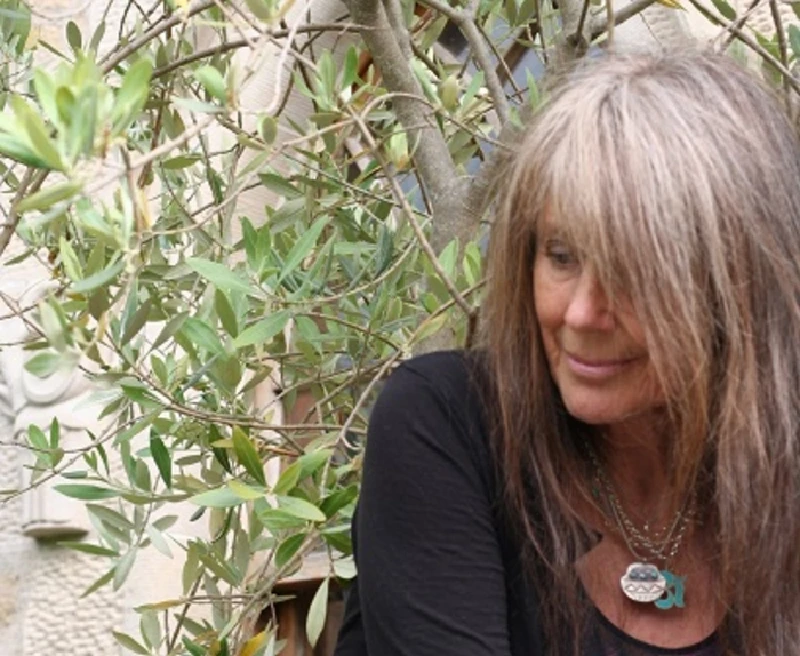
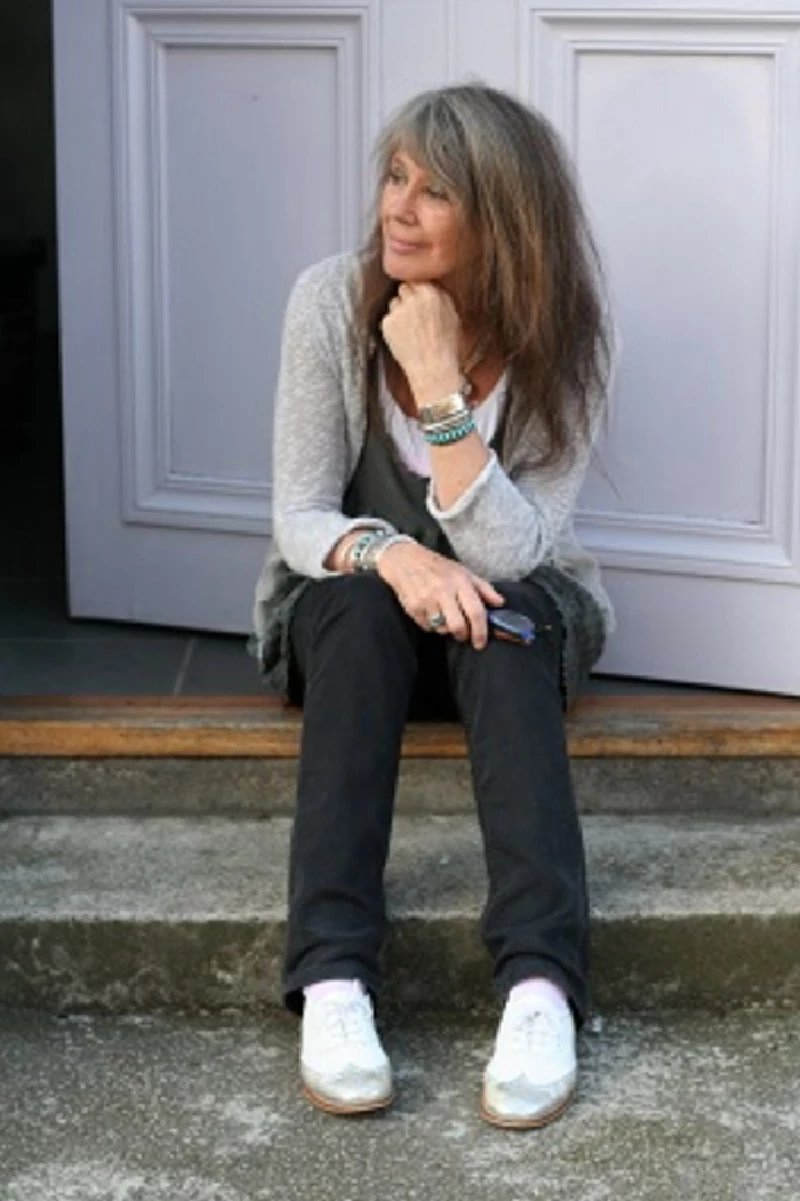
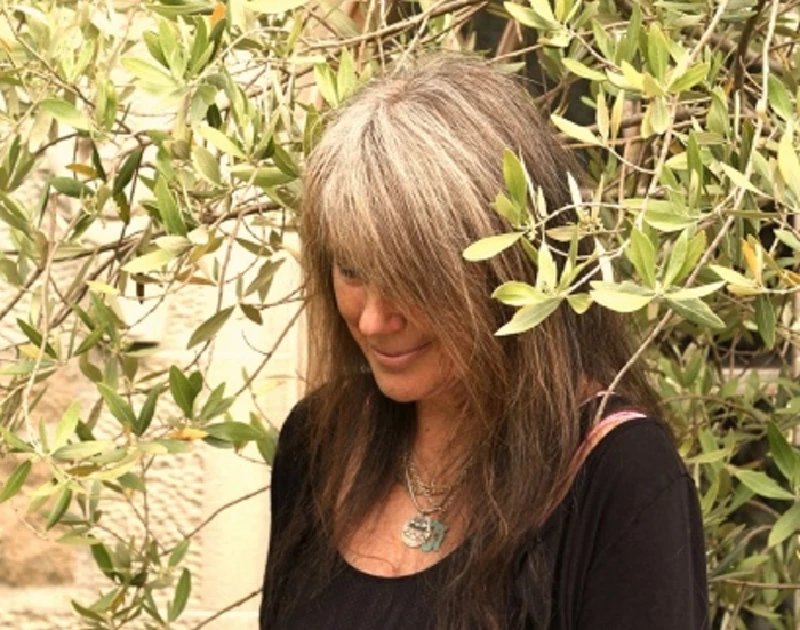
interviews |
|
Interview (2007) |
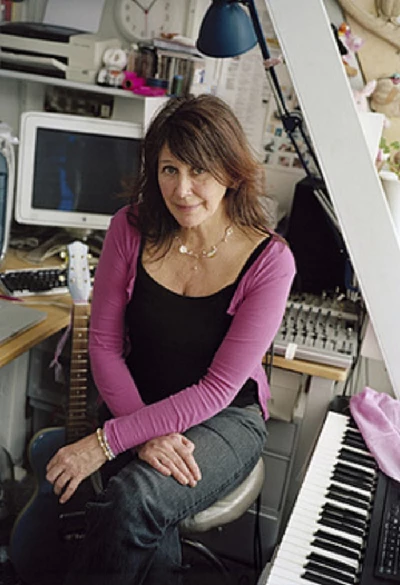
|
| Vashti Bunyan dropped out of the music album after recording her now classic debut album 'Just Another Diamond Day', before returning 35 years later with its follow-up 'Lookaftering'. She talks to Malcolm Carter about both albums, and a new double CD compilation of early lost recordings |
live reviews |
|
St Philip's Church, Manchester, 12/10/2014 |
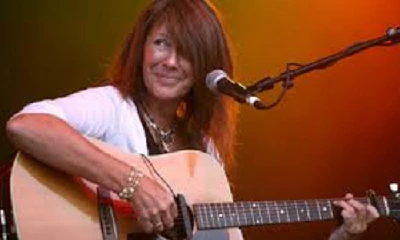
|
| Nicky Crewe watches 60's singer-songwriter Vashti Bunyan play an atmospheric and enthralling set at St Philip's Church in Manchester |
reviews |
|
Heartleap (2014) |
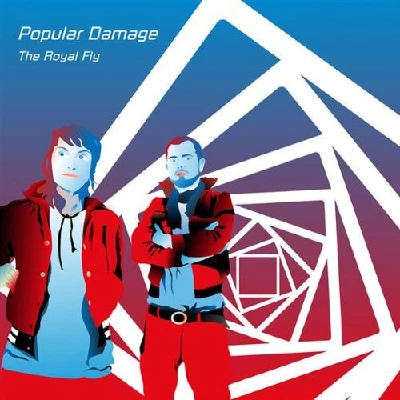
|
| Magical fourth album from rediscovered and now much acclaimed 60's folk cult icon, Vashti Bunyan |
| Some Things Just Stick in Your Mind (2007) |
| Lookaftering (2005) |
most viewed articles
current edition
Carl Ewens - David Bowie 1964 to 1982 On Track: Every Album, Every SongArmory Show - Interview with Richard Jobson
Colin Blunstone - Thalia Hall, Chicago, 16/7/2025
John McKay - Interview
Visor Fest - Valencia, Spain, 26/9/2025...27/9/2025
Bathers - Photoscapes 1
Billie Eilish - O2 Arena, London, 10/7/2025
Loft - Interview
Robert Forster - Interview
Sir Tim Rice - Interview
previous editions
Manic Street Preachers - (Gig of a Lifetime) Millennium Stadium, Cardiff, December 1999Heavenly - P.U.N.K. Girl EP
Beautiful South - Ten Songs That Made Me Love...
Oasis - Oasis, Earl's Court, London, 1995
Prolapse - Interview
Boomtown Rats - Ten Songs That Made Me Love....
Peter Perrett - In Dreams Begin Responsibilities Interview Part One
Coldplay - Wembley Arena. London, 16/8/2022
Trudie Myerscough-Harris - Interview
Pixies - Ten Songs That Made Me Love...
most viewed reviews
current edition
Davey Woodward - Mumbo in the JumboAmy Macdonald - Is This What You've Been Waiting For?
Sick Man of Europe - The Sick Man of Europe
Phew, Erika Kobayashi,, Dieter Moebius - Radium Girls
Lucy Spraggan - Other Sides of the Moon
Bush - I Beat Loneliness
Suzanne Vega - Flying With Angels
Alice Cooper - The Revenge of Alice Cooper
Blueboy - 2
Cynthia Erivo - I Forgive You
related articles |
|
Vashti Bunyan: Interview (2014 |

|
| Nicky Crewe speaks to 60's cult folk legend Vashti Bunyan about her fourth album, 'Heartleap' |
Pennyblackmusic Regular Contributors
Adrian Janes
Amanda J. Window
Andrew Twambley
Anthony Dhanendran
Benjamin Howarth
Cila Warncke
Daniel Cressey
Darren Aston
Dastardly
Dave Goodwin
Denzil Watson
Dominic B. Simpson
Eoghan Lyng
Fiona Hutchings
Harry Sherriff
Helen Tipping
Jamie Rowland
John Clarkson
Julie Cruickshank
Kimberly Bright
Lisa Torem
Maarten Schiethart